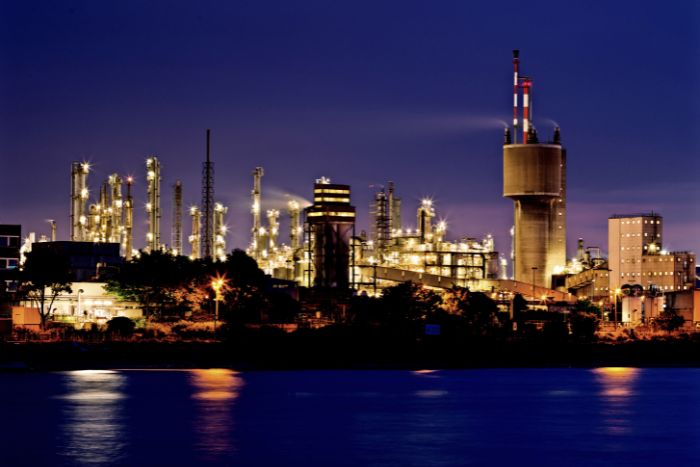The consequences of the war in Ukraine are manifold, and have a particular impact on the energy sector in France. In addition, some nuclear power plant reactors have been shut down for maintenance.
In this context, the government has set up a series of regulatory mechanisms to secure supplies for companies on the national territory. The aim of this article is to present the main mechanisms, which are aimed at both producers and suppliers, as well as the companies themselves, who may be required to make certain efforts. At the same time, the government has introduced a number of support mechanisms for businesses (link to article 1).
Load shedding or interruptibility of natural gas consumption
The French government has set up three emergency measures that can enable a natural gas supplier to reduce or even cut off a consumer's natural gas supply:
- Load shedding
Code de l'Energie Articles R. 434-1 to R. 434-7: Natural gas load shedding (Livre IV, Titre III, Chapitre IV)
Newly introduced by decree no. 2022-495 of April 7, 2022, natural gas load shedding is an emergency measure designed to significantly reduce or even cut off a consumer's natural gas supply.
A load shedding order is sent to the consumers concerned, who must comply within two hours.
Consumers covered by this scheme are those whose natural gas consumption exceeded 5 GWh over the previous calendar year. After responding to an inquiry sent by the operator of the transmission or distribution network to which they are connected, the consumer is placed on a list by the prefect, which is then used to prioritize load shedding.
Prioritization is defined as follows:
ListShedding priorityList 1: consumers generating electricity through a power plant with a capacity greater than 150 MW1 (up to the level of supply likely to jeopardize the security of electricity supply)List 3 : Consumers who are not included in lists 1 and 2 and who are likely to suffer major economic consequences in the event of a reduction or cessation of their natural gas consumption2 (up to the supply level beyond which these major economic consequences are likely to be observed3 (beyond the supply level mentioned above)Other consumers4
Note: list 2 concerns consumers carrying out missions of general interest linked to the satisfaction of the nation's essential needs, particularly in terms of security, defense and health, or providing a heating service for sites carrying out these missions of general interest or for housing, provided that these consumers are not able to switch to fuels other than natural gas in order to provide the heating service.
- Guaranteed interruptibility
Order of December 17, 2019 on the interruptibility of natural gas consumption
The French government, through law no. 2022-158 of August 16, 2022 (known as the "purchasing power law"), has extended the "guaranteed" paid interruptibility scheme to consumers. (1) connected to gas distribution networks, and no longer only to consumers connected to the transmission network, thus increasing the flexibility potential that can be contracted by natural gas transmission system operators.
As a result, the Order of December 17, 2019 on the interruptibility of natural gas consumption was amended on October 3, 2022.
The criteria for benefiting from such a contract have changed. It can now apply to all consumption points connected to either the transmission or distribution network that meet the following three criteria:
- the delivery point on which the place of consumption depends delivers gas exclusively to this place of consumption;
- consumption exceeds 5,000 MWh/year;
- no electricity generation from natural gas is carried out at the place of consumption.
When a "guaranteed" interruptibility contract is concluded, the consumer must undertake to :
- have an interruptible capacity of at least 20 MWh/d ;
- send the relevant network operator, by Thursday at the latest, for each day of the following two calendar weeks, the minimum daily consumption schedule that it forecasts for the consumption location.
At the request of the transmission system operator, the distribution system operator transmits the activation order to the consumer by 4pm at the latest, for activation at 6am the following day. The consumer must then send an acknowledgement of receipt of the activation order within two hours to the network operator to which the consumption site is connected. The duration of interruptible capacity activation may not be less than 24 hours, and may not exceed 240 hours per year.
- Secondary interruptibility
Order of December 17, 2019 on the interruptibility of natural gas consumption
Approved consumers (1) who wish to sign a secondary interruptibility contract must have an interruptible capacity of at least 40 MWh/d; consumers connected to the distribution network must also have an annual reference consumption of over 5,000 MWh/year. They must undertake to acknowledge receipt of an activation order within a maximum of 12 hours, and to respond within a maximum of 24 hours.
A secondary interruptibility contract for transmission is concluded for a maximum period of four years, terminable every year before April 1. A secondary distribution interruptibility contract is concluded for a period of one year, renewable up to three times for a further year. They take effect on April 1 following the date of signature.
This system remains unchanged.
(1) : Whatever the system, consumers wishing to sign an interruptibility contract with the network operator for a consumption site must first have been approved by the network operator. This approval is subject to the presence of a metering system enabling daily consumption readings to be taken, and to the consumer's ability to respond to orders to activate interruptible capacity. Approval is granted for a period of 4 years, and may be withdrawn by the operator in the event of multiple failures in the activation order transmission test.
Securing the electricity supply
Code de l'énergie Articles L. 143-4 to L. 143-6-2: Provisions specific to electricity and gas (Livre Ier, Titre IV, Chapitre III, Section 2)
Until August 17, 2026, in the event of a serious threat to the security of electricity supply , the Minister responsible for energy may, by decree, in particular :
- order operators of electricity generation facilities using natural gas to restrict or suspend the operation of their facilities (only in the event of a threat to natural gas supplies)
- requisition the services responsible for operating these facilities to ensure that they function only in accordance with the instructions and under the control of the operator it designates (in the event of a threat to the supply of natural gas AND electricity).
Exclusions: cogeneration plants for which an electricity purchase obligation contract is in force, or which supply thermal energy to a heating or cooling distribution network qualifying as an industrial and commercial public service.
The same framework also includes a mechanism requiring all illuminated advertising visible from the public highway to be switched off in the event of power failure (illuminated advertising, advertising supporting posters illuminated by projection or transparency, digital advertising in built-up areas and outside built-up areas, on roads open to public traffic, as well as in airports, railway and bus stations and public transport stations and stops).
Note: this is an emergency mechanism, in addition to the obligation to extinguish illuminated advertising at night, between 1 a.m. and 6 a.m., as defined by the Environment Code.
Code de l'énergie Articles L. 321-6 to L. 321-17-2: Duties of the transmission system operator (Livre III, Titre II, Chapitre Ier, Section 2)
During periods of high system stress, the public electricity transmission system operator has the following recourse options:
- Call on all technically available and unused consumption, generation and storage balancing capacities developed by balancing operators;
- Call on all unused and technically available power from consumption sites that use back-up electricity generation or storage facilities of over 1 MW (2). The operators of the generation and storage facilities concerned may not refuse to make such power available.
(2) : the terms and conditions of this system are currently under consultation with the public
Off-peak/peak switching during the winter period
Order of September 22, 2022 on metering devices on public electricity distribution networks
This decree stipulates that, for metering devices made available to users of public distribution networks who have subscribed to a supply offer that includes daily management of the controllable contact (peak/off-peak principle), public electricity distribution network operators temporarily deactivate the closing of the controllable contact between 11am and 3:30pm.
This daily deactivation, which may not exceed two hours, begins before 2pm.
This mechanism is available from October 1 to May 15, 2023.
The regulations governing these mechanisms have not yet been published. The information given in this article is subject to adjustment in the light of decisions taken by the French government and developments in the situation.
Finally, a programmed load-shedding mechanism has been devised by the operator of the electricity transmission network (RTE) and the distribution network (Enedis) to avoid a widespread blackout. This technical mechanism is not detailed in this article.


.svg)



